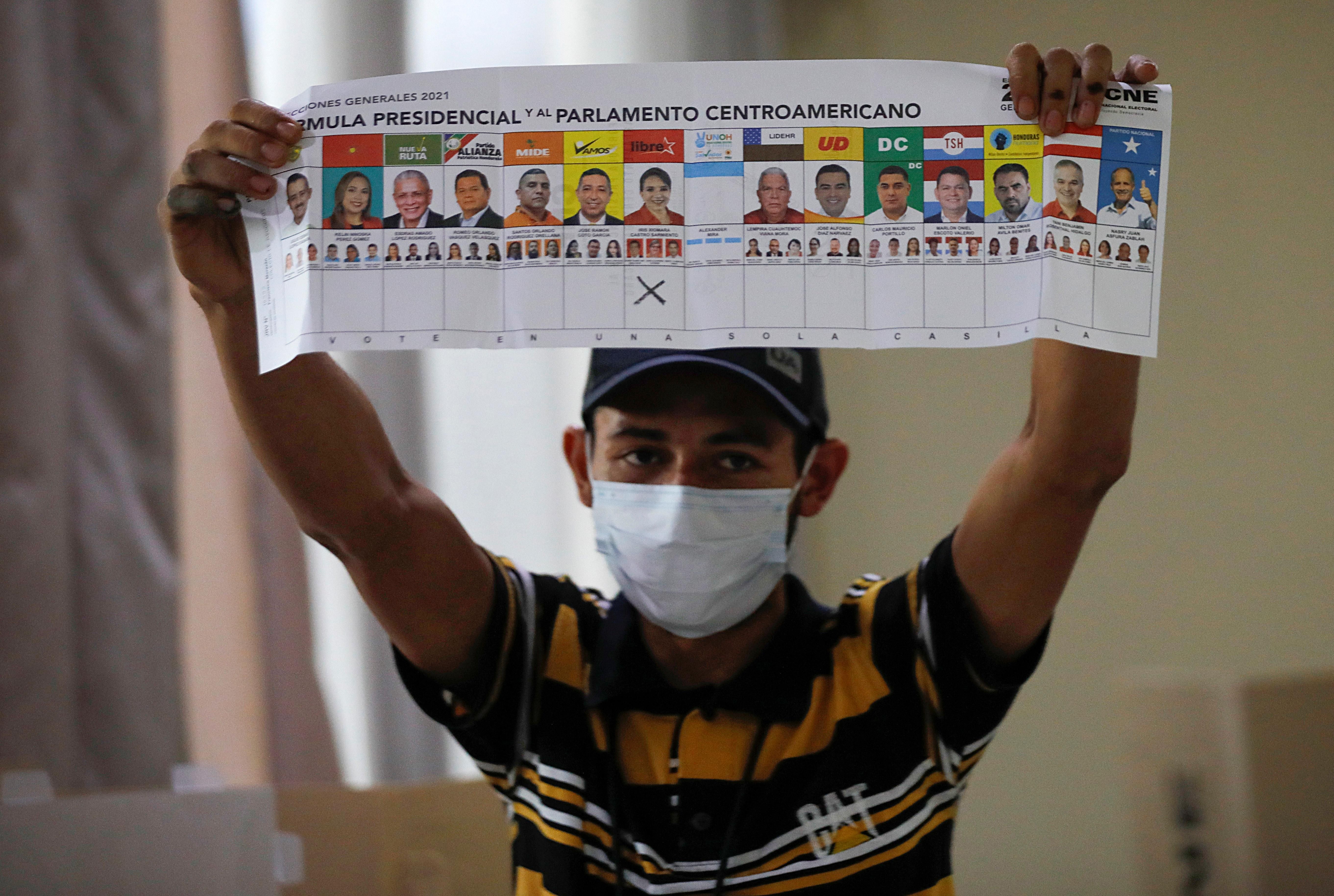November 29, 2021
Honduras braces for post election upheavals (again). Leftist opposition candidate Xiomara Castro jumped out to a sizable early lead in Sunday's Honduran presidential and legislative elections, but her rival is also claiming victory in a vote already marred by fears of violence and several confirmed cyberattacks on voting systems. Castro's main opponent is businessman and capital city mayor Nasry Asfura, candidate of the ruling center-right National Party. If Castro wins, she would become the Central American country's first female president, and the first leftist to hold power since her husband, Manuel Zelaya, was ousted in a coup 12 years ago. The stakes are high for Honduras, which has been wracked by gang violence, sky-high murder rates, and poverty for years. Widespread irregularities in the 2017 re-election of current president Juan Orlando Hernandez led to days of deadly violence, and Hernandez himself has since been placed under US investigation for ties to drug traffickers. Outside of Honduras both Mexico and the US will be watching closely — hundreds of thousands of Hondurans have fled instability in their home country in recent years, traversing Mexico to seek opportunity in the USA: after Mexicans, Hondurans are currently the second most common nationality apprehended at the US southern border.
From Your Site Articles
More For You
- YouTube
In this Quick Take, Ian Bremmer addresses the killing of Alex Pretti at a protest in Minneapolis, calling it “a tipping point” in America’s increasingly volatile politics.
Most Popular
- YouTube
Who decides the boundaries for artificial intelligence, and how do governments ensure public trust? Speaking at the 2026 World Economic Forum in Davos, Arancha González Laya, Dean of the Paris School of International Affairs and former Foreign Minister of Spain, emphasized the importance of clear regulations to maintain trust in technology.
- YouTube
Will AI change the balance of power in the world? At the 2026 World Economic Forum in Davos, Ian Bremmer addresses how artificial intelligence could redefine global politics, human behavior, and societal stability.
Ian Bremmer sits down with Finland’s President Alexander Stubb and the IMF’s Kristalina Georgieva on the sidelines of the World Economic Forum to discuss President Trump’s Greenland threats, the state of the global economy, and the future of the transatlantic relationship.
© 2025 GZERO Media. All Rights Reserved | A Eurasia Group media company.
